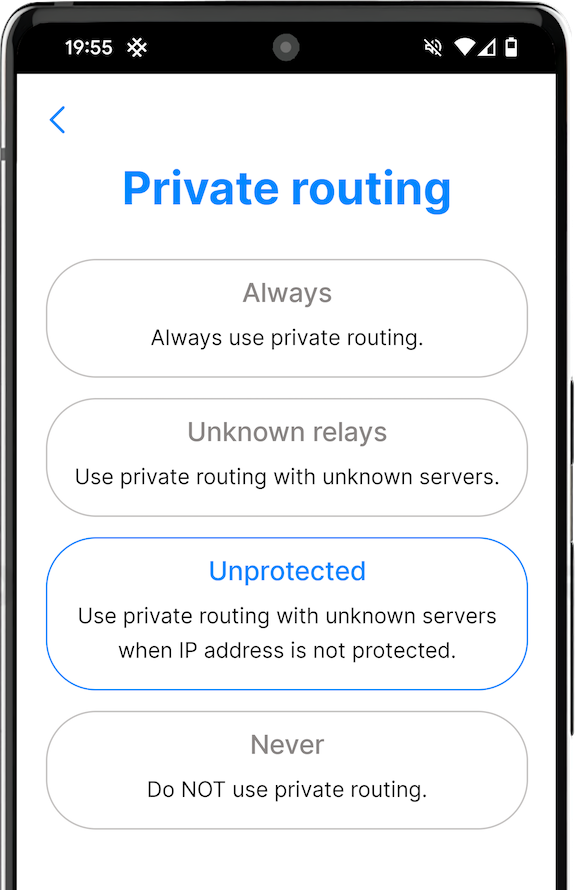


forgejo: https://forgejo.asudox.dev/Asudox
matrix: https://matrix.to/#/@asudox:matrix.org
aspe:keyoxide.org:D63IYCGSU4XXB5JSCBBHXXFEHQ
- 6 Posts
- 161 Comments
They’re better than passwords in that they really are phishing proof and well they are basically RSA key pairs that are generated, so they are naturally brute force resistant. Great for the majority because most people reuse their crappy password over and over again, ignorant of the fact that password managers exist just because they have to spend 10 seconds more to press buttons to generate a password and store them in the db. The tech is great as long as the user knows how to keep them safe.
HOWEVER: Since third party password managers (like Bitwarden, 1Pass, etc.) just recently started to provide support for passkeys, alot of people who wanted to use passkey on first release were locked into big tech bros like Google on Android and Apple on iOS’ solutions. And well that’s not good at all. The tech is great though, I’m all for it. You just need to know where to store them. Ideally, I’d store them offline on my device and that exists already but not on Linux (afaik) nor on Android are they a reality yet.
^They definitely are not more than secure than my yubikey though.^
Indeed. Since it seems like that was too ambigious for you, I explicitly changed it to TOTP.
I mean, if you knew how most of the password managers worked, you also would’ve known this.
Edit: Furthermore, the 2FAs you speak of are proprietary solutions that can’t even be added to password managers, so I assume you didn’t even properly read anything.
Yes. If you use bitwarden, even if you pay for premium or host it yourself, don’t keep them in the vault. Don’t sync them over the internet. In case someone somehow gets into your password manager, at least the TOTP secured accounts will (most likely) stay safe. The recovery codes should stay offline and encrypted somewhere safe in your home. You probably also want to secure your BW account with a hardware key such as yubikey for additional security.
Exactly. There’s no reason for them to support Bitcoin over Monero in their wallet if they care about privacy. Also, bitcoin can be used for paying for their subscriptions but not monero.
Their reason is just so that crypto bros get interested in it and other people who are still under the assumption that bitcoin is the most private and secure.
This has been ignored by Proton for over 6 years now. And it has like 2800 votes.
This is a pretty big red flag for a privacy company.
Nostr communities were calling it a honeypot (even though all they talk about everyday is cryptocurrencies). I am also calling it a honeypot. Also, if they care about privacy, why not make Proton Wallet compatible with Monero? This is why I left Protonmail after one year of using it. They are the shittiest privacy company ever. They only seem like they care about privacy, but I know they aren’t. I mean, any privacy focused company that has that “Hot now” or “Best seller” etc. thing on their pricing page can’t be trusted. I switched to Posteo since their privacy policy and website seem to be much much better than what Protonmail’s ever could be. They don’t even support POP3, fortunately Posteo does. Proton was redirecting Tor users from their .onion domains to clear net domains a few years ago and even then they were requiring a SMS verification just because you were using Tor. How “private” of them.
People on Lemmy really should start realizing this about Proton but some are just stubborn.
Bitwarden. I do like KeePass, but I am having problems with syncing it across devices. I know Syncthing exists but let’s say I add two passwords in two devices. Both of them don’t have the other one’s new password entry and that causes problems. Instead using online synchronization is much more convenient. Which is why I self host bitwarden.
They explicitly state that the digital euro is not here to replace cash:
Q3. Would a digital euro replace cash?
No. A digital euro would complement cash, not replace it. A digital euro would exist alongside cash in response to people’s growing preference to pay digitally, in a fast and secure way. Cash would continue to be available in the euro area, as would the other private electronic means of payment currently being used.
- Overpriced
- Tim Cook
- Closed ecosystem
- People using Apple devices are usually people that don’t know a thing about tech, yet boast about how good Apple is while criticizing other brands, blindly believing the marketing Apple does
- Shitty decisions
- Devices are designed to be as hard as possible to self-repair
- Overpriced


How does it work? I was planning on importing a recommendation algorithm I made in the past for MAL for an upcoming fediverse summer project I was thinking of making that was also pretty much privacy-friendly. I’d like to know how you do the on device recommendation though. Since it’s content based, do you download thousands of posts or something?
Yeah. Technically that should be possible. But why would you do that is the real question. Afaik you won’t be able to use GNU Taler without an existing backend. Your backend would be a bank and why not just withdraw coins from there. I don’t know whether you can self host the backend. There would be no reason to be afraid of the bank knowing where you send the coins to as that is pretty much hidden from the bank. I explained GNU Taler to my best abilities in this comment: https://lemmy.world/comment/10414943

Canta uses Shizuku to delete user and systen apps. There is also a few categories like Recommended, Advanced, Unsafe, etc. Most of the apps also have comments on it by the dev (I suppose).